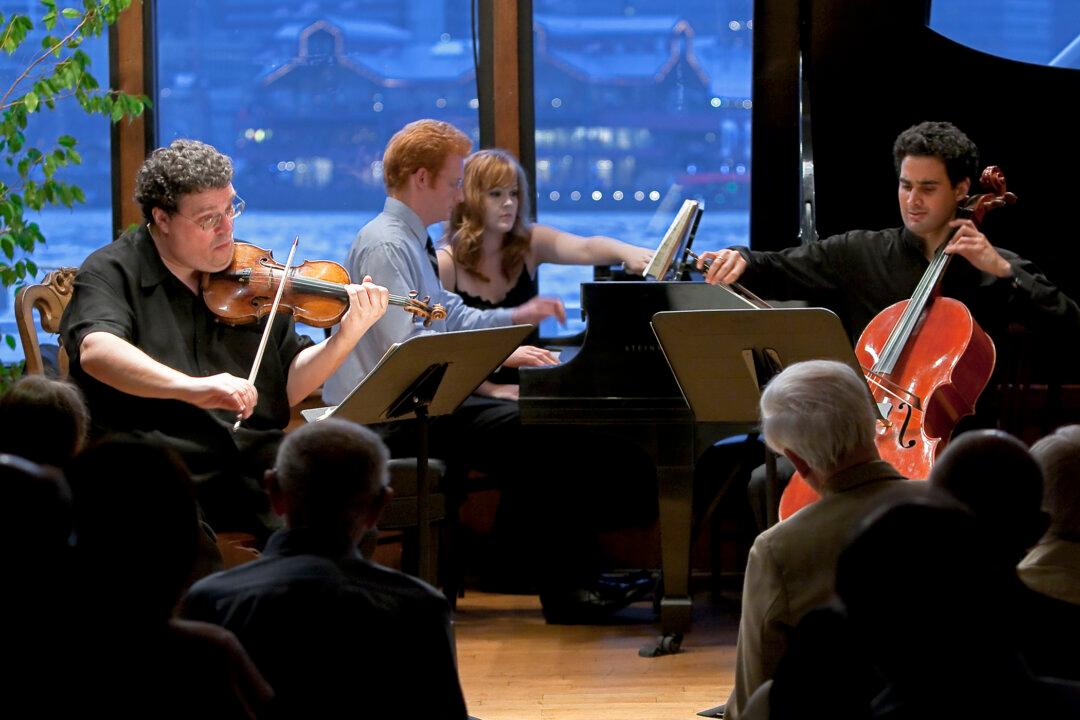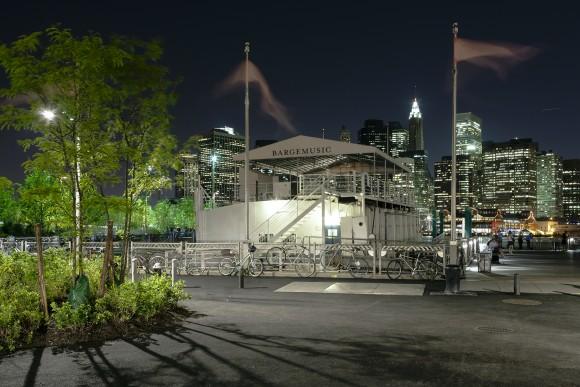NEW YORK—There might now be more young classical musicians launching their careers than Mark Peskanov remembers ever seeing before. It might even be a record, he says.
“But I don’t think it’s the same story with the number of concerts [presented], so of course, I have concerns,” said Peskanov, head of the Brooklyn waterfront chamber music series Bargemusic.
That’s part of the reason he holds so many concerts per year on the floating venue, located right beside Brooklyn Bridge Park. A typical Bargemusic season has over 200 concerts, and one year, he held well over 300. For comparison, Carnegie Hall presents about 180 concerts a year across its three stages. (It also rents the venue to other presenters.)
Peskanov sees the barge as a place for him to create opportunities—to properly present young musicians and help them along with their careers, and to give audiences the opportunity to experience great music of great variety.
“If you are a really fine musician and performer, sooner or later, you will be invited to perform at the barge,” he said. Bargemusic presents both established and young musicians, and Peskanov sees programming performances at the barge as an opportunity to allow young musicians to showcase their gifts.
Peskanov would like to take the idea of creating opportunities even further: He’s entertaining the thought of creating a whole fleet of Bargemusics around the world. If there were just 10 of these, and each one held 100 concerts a year, then that’s one thousand concerts, Peskanov said. “Can you imagine? What an amazing cultural institution it would be. And it’s fantastic for the economy.”
Bargemusic was established 40 years ago by violinist and violist Olga Bloom. She picked out the 100-foot-long steel barge from the New York Harbor to serve as a floating concert hall, hosting beautiful chamber music.
Over the years, the barge has been a stalwart center of culture for the waterfront community, seeing it through its transformation from an industrial site to the trendy, upscale neighborhood it is today. The barge, the Brooklyn Bridge Park, and the restaurants clustered in the area have undoubtedly contributed to the rise in value of the neighborhood.
Bloom had high requirements when she started searching for someone to take over Bargemusic, Peskanov said. She wanted someone who could pass on the traditions of the great musicians from one generation to the next, with an uncompromising artistic level of music-making.
“She told me she was praying to God ... to find someone who would do that,” he said. “It was important for her to have on stage someone who could set the example.”
Peskanov’s own introduction to professional chamber music came from the eminent violinist Isaac Stern, who extended an invitation to him while on tour in Japan to inaugurate the opening of the Suntory Hall. Peskanov, also a violinist, was asked to play the viola part for a Schubert quintet and Brahms sextet.
“I learned to play viola so we could make music together,” said Peskanov. As a fast-rising young musician, Peskanov was mainly playing concertos with major orchestras all around the world. At the same time, he was one of those young musicians invited by the likes of Stern, Yo-Yo Ma, Emanuel Ax, and Mstislav Rostropovich, “those mature, great musicians,” to play chamber music, so that they could pass on what they knew.
“It stuck with me,” Peskanov said, and it is what he had in mind when he got involved with Bargemusic. “I was lucky enough to be part of [these traditions], and now I could pass this on to other players.”
Meeting Bloom is the only memory Peskanov has of the first concert he played at Bargemusic. It sounds cliché to say they immediately hit it off, he said, but that is what happened. They bonded over their tremendous love for violin and great music-making, and “it was such a kinship.”
“All I remember was this one lady sitting at a table, and she just looked at me and said, ‘Welcome to your barge!’” Peskanov said with a laugh. “And I said, ‘Wow, great!’”
“She was larger than life,” he said.







